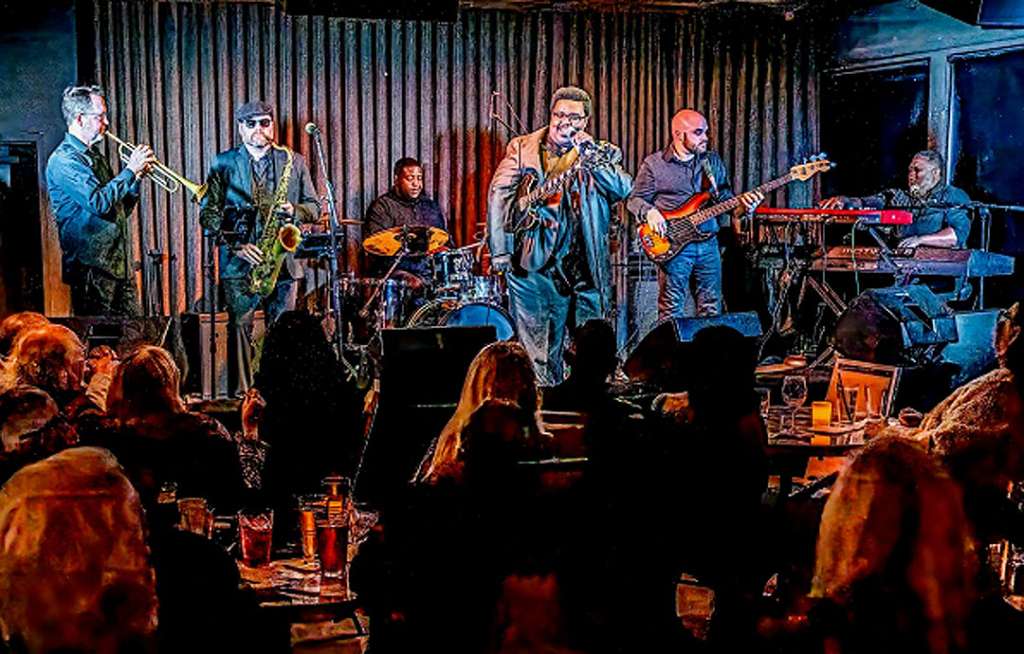
If you ever get the chance to hang out with D.K. Harrell and his band, make sure it’s over the breakfast table. The conversation flows fast and thick like our biscuits and gravy and the subject matter ranges from everything family and friends, good times, hard times and all things music. The entire band is well-versed in the latter and all speak fluent blues, jazz, soul, R&B and roots dialects. Not only young and talented, they openly display a shared enthusiasm and serious commitment to the music they love. You see it clearly when they acknowledge influences or when praising those who paved the way, but it grabs you by the throat when they step on stage and you witness it up close and personal with every note they play.
D.K. let’s start with early life; you’re originally from the Peach Capital of Louisiana… “Ruston, Louisiana is my hometown, I was born there on April 24th, 1998. I was there because I marked it on the calendar.” He grins. “And it is the Peach Capital of Louisiana. I spent a lot of my childhood listening to blues music with my grandfather, C. H. Jackson from Spearsville, Louisiana which was 36 minutes North of Ruston, way up in the country. My mother, Christal Jackson was also my inspiration when it came to blues because my grandfather kept blues not only around me, but around the whole family. He was a blues fanatic and he loved old school R&B from the 50s and 60s because during that time in his life he was in his late teens and early 20s. A college kid at HBCU listening to Otis Redding, B.B. King and Bobby ‘Blue’ Bland and it stayed with him throughout his life…and he hipped his grandson to it. His other grandchildren and my cousins were more into Hip-hop, that’s what they liked. But there was something about the blues and R&B music that just stuck with me and I loved being around my grandfather. We actually counted how many vinyl albums he had and it amounted to 322 vinyl records in his home. And it was a vast variety of music; blues, gospel, R&B, soul and he liked Elvis. Which kind of blew my mind…but he told me Elvis had come to the Monroe Civic Center which is just 30 minutes away from Ruston and B.B. King had played there, Albert King had played there, and Johnny Cash because back then it was considered the chitlin’ circuit. And my grandfather actually housed Bobby ‘Blue’ Bland and his band at his home in 1977 when they were traveling from Jackson, Mississippi to Dallas and instead of staying in a hotel in Monroe they came across my grandfather, who was an educator and he said, ‘you know what, I’ll save you guys some money you can stay at my home.’ If you know about Bobby ‘Blue’ Bland at that time, there were about 8 or 10 people in the band. And we’re talking about a three bedroom, two bath room home; he said he had so many pallets lying out through his house…” (laughing)
Is it true some of your first words were singing along to B.B.’s ‘The Thrill is Gone?’ “I was about 18 months old and I didn’t make much noise as a baby. I rarely cried or didn’t babble or say momma or dada and it worried my family to the point they almost had me tested for vocal cord issues. My grandfather said, ‘Maybe he just doesn’t have anything to say, right now.'” (laughing) “One day my mother and I were going to Shreveport and my grandfather gave her a copy of B.B.’s ‘Deuces Wild’ to listen to and she heard a little voice in the background in a car seat singing ‘The Thrill is Gone.’ And that’s stamped as the day I started talking. But the way my mother puts it, ‘that’s how he started talking and since then I haven’t been able to get him to shut up.” (laughing)
“To play that guitar, I was done living right then, my life was done. Take me now, Lord!”
—D.K. Harrell on playing ‘Lucille’ B.B. King’s guitar.
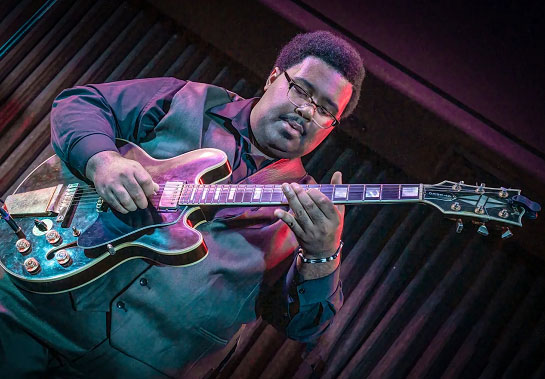
You got to meet B.B. at a concert, didn’t you? “Russ Bryant, my musical director…” D.K. starts to shake his head. “…the way the universe works is strange. Russ runs PSS the Premier Production and Sound Services in Baton Rouge, Louisiana…Russ, you tell him.“
Russ Bryant: “My company PSS…we were doing all the sound production for B.B. King’s performance at the Baton Rouge River Center Theater and unbeknownst to me, I had never met D.K. but he was there, and Andrew Moss our bass player was there as well. We were all at this show before we met each other and eventually we all realized we had experienced B.B. King together and I still have the microphone that B.B. King sang on. And I think it was one of the last shows he did in Louisiana before he passed.”
DK: “It was January 19th 2013. It was a late Christmas present and my mother had a manila envelope and I opened it and it was two tickets to see B.B. King in the Orchestra section; it was beautiful. At the end of the show I kind of pushed my way through the audience to the front of the stage and everybody is yelling, ‘BB, sign my hat. Sign my shirt,’ and I’m like, Mr. King, Mr. King and he looked dead at me and I swear my legs turned to jelly and he goes, ‘Hey young man.’ And I said I want to be just like you, I got my haircut just like you from the 50s. And he goes ‘Yeah, I remember when I had hair like that, but I don’t have hair like that anymore.’ And he gave me one of his picks and he shook my hand and said, ‘Young man, you can be whatever you want to be, and if you want to be like this old man you gotta’ work hard.’ And as soon as I got out the door of the theater, I busted out in tears and haven’t been to another concert since. It was a very magic moment. My grandfather came to Baton Rouge with us and picked us up after the show and said, ‘Did you get a chance to shake his hand?’ I said, yes sir. He said, ‘Well, maybe B.B. put some good mojo on you.’ And look, ten years later, this is what you got.” (laughing)
I don’t think many people realize you didn’t start on guitar, but on the harp. “Yes. Not harp like classical music, but harp as in harmonica… the Louisiana saxophone. My cousin, Jamari Harris is older than me and around 2009 or 2010 said there’s a movie called ‘Cadillac Records’ and it’s got blues and stuff in it, so you’ll like it. I watched the film and it had music from Little Walter, who is actually from Marksville, Louisiana and I said man, I want a harmonica. I asked momma, can I please have some harmonicas and she said okay as long as you actually play them. She got me three in the key of A, C and D and I blew the reeds out of them in two days.” (laughing) “I shattered them all! I’m pretty sure over the course of two years I went through like fifty harmonicas.“
You’ve mentioned Guitar Slim as another influence for you. “He did a song called ‘Think it over one more time’ and I was like, I really like this song. I like the way this guy’s playing because what I like about the old cats is they just had an ear for music and then of course however they played was just how they played. It was so interesting because he just had a different playing style and it almost sounded sloppy to me. When you listened to the guitar solo in ‘Think it Over’ it’s a weird solo when he starts it but it folds out better as he goes on. My grandfather and I would stay up till like two in the morning watching different artists on his computer like Big Joe Williams, Big Joe Turner, Sarah Vaughan, Slim Gaylord…what I liked about Slim was his humor, but in my opinion his was one of the most underrated jazz guitarists, Slim Gaylord was a very talented musician from piano to guitar he could play anything. That’s one thing I’ve tried to bring to my show from Slim Gaylord…is the humor in the stage presence and lyric wise with the vocals.
Another big influence when I first started playing guitar was Elmore James and Muddy Waters, but I’ve got stupid fingers. I can’t play slide to save my life.” (laughing) “…very stupid fingers. I also listened to Chuck Berry, but the Stones got him down and the Animals and all these guitar players have his sound down so I thought to myself, this was like 2012, who’s an artist that people try to get tone-wise and style-wise and try to have that same approach but just can’t get it? And it’s B.B. because if you think about it B.B.’s playing to me as a guitar virtuoso, is very similar to the approach of Miles Davis an how he handled trumpet because Miles took advantage of space just like B.B. took advantage of space. And that goes hand-in-hand on what my grandfather used to tell me, time waits for no one, so do what you can now. In other words you have to take advantage of time and space because once it’s gone you can’t get it back.“
Russ: “It’s not about how many notes you play or how much you can shred as a guitar player, but rather can you play the right note, at the right time and the right place. And that was B.B.’s style.“
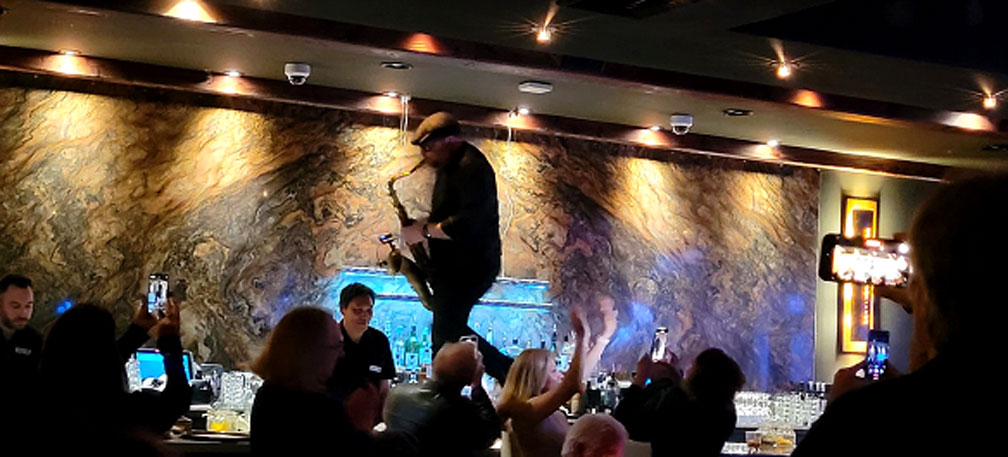
Let’s talk a little about your songwriting, do you write with your guitar, do you have a process? “My process is usually, I sit down, not with my guitar but by myself in a room and sometimes I watch movies or TV or talk to random people and sometimes they’ll say something that just clicks and I’ll go…Oh there’s a song in there somewhere and I’ll write it down on my phone but I still believe in a pen and paper, but the phone is right there and I’ll take it out and make notes. And I’ll come back to it and then I’ll sit there and really focus on the lyrics. A lot of people like music specifically for the music; you know the sound of the instruments but I feel like a real artist is concerned for what the audience listens to on a lyrical basis. Because the lyrics are really what makes the audience connect with you. If you think about it, every poet, every painter has details in their speech and in their art and if there is one little thing missing or one word is missing it wouldn’t make sense. It’s the little things that matter and that’s what changes you. When I write songs, I try to be as personal as possible. Even if you haven’t been through it, you can understand it because I’m trying to describe it in detail…and that’s the process I try to use.“
Blues has always been considered a form of communication; do you consider yourself a storyteller? “Oh yeah, watch this…Once upon a time.” (laughing) “I do consider myself a storyteller but the words I use really matter and you know that saying, ‘words hurt.’ What’s the actual saying…the pen is mightier than the sword. That saying is true. If you tell hurtful things to some people, they can hurt themselves or other people just because of what you said. So storytelling is important you try to make it positive and even if it’s a negative subject the idea should be that you overcame whatever it was that was hurting you and that you continue moving forward. Either way, life is short, take it with a grain of sand and keep moving.“
Tell me about your album ‘The Right Man.’ “Jim Pugh is the president of the Little Village Foundation recording label and I owe a great deal of gratitude to this man. About two years ago we met at the International Blues Challenge in Memphis and I really owe my recording career to Jim Pugh and Michael Kinsman. ‘The Right Man’ was recorded in three days with Kid Andersen; we also had Tony Coleman who was B.B. King’s drummer for 35 years. We had Doc Kupka from Tower of Power do horns for us along with Neil Levonius, John Halbleib, Mike Rinta, Mike Peloquin and Aaron Lington. But a real highlight of the whole recording session is we had the original bass player on the recording of B.B.’s ‘The Thrill is Gone’ Mr. Jerry Jemmott.
Jerry is in his mid-70s now and we were recording ‘Leave it at the Door’ and I was sitting there playing my guitar part in the studio and Jerry was listening and said, ‘the red Gibson you’re playing’ it belonged to Kid Andersen and was like a ’66 or ’68, ‘it’s the very same style of guitar that B.B. had when he recorded ‘The Thrill is Gone.’ It wasn’t the exact one, not his, but it looks just like it. He told me recording on this session these past few days has brought back so many memories of recording with B.B. and it’s an honor to be on the record with you. And I wanted to cry; because I was thinking…I should be saying that to him.” (laughing) “But recording that session was like a match made in heaven and Jim Pugh…I love you and there’s nothing you can do about it.”
You had the unique opportunity to play B.B.’s guitar ‘Lucille’ at one time, didn’t you? “Yes! September 9th, 2019. I was 21 years old and my very first gig, my first show, was the B.B. King Symposium in Indianola, Mississippi near Itta Bena, B.B.’s home town. Lil’ Ray Neal is usually the guy that plays B.B.’s guitar, he’s part of Kenny Neal’s band and I think he’s his little brother; and Lil’ Ray pulls out ‘Lucille.’ There were several of them but this was the ‘Lucille’ that Gibson made for B.B. when they opened the museum in 2005. At that time only three people had played it; B.B. himself, Keb Mo and Lil’ Ray Neal. I said to Ray, Oh, are you going to play it? And he said, ‘No, today is your day!’ And the first song I played on that guitar was ‘Sweet Little Sixteen.’ To play that guitar, I was done living right then, my life was done. Take me now, Lord!“
Introduce your touring band? “Russ Bryant is our production manager, musical director and saxophone player. Andrew ‘Fingers’ Moss on bass, Orlando Henry on keys, Dan Isbell on trumpet who now goes by Doctor because he’s a professor of music at Penn State University. And the youngest member of the group is Justin ‘the Giant’ Brown on drums from Vicksburg, Mississippi. This band is my dream band. We like hanging out together and I really like how close everyone is. Having a relationship on stage is great but having a relationship offstage makes the energy on stage ten times better.“
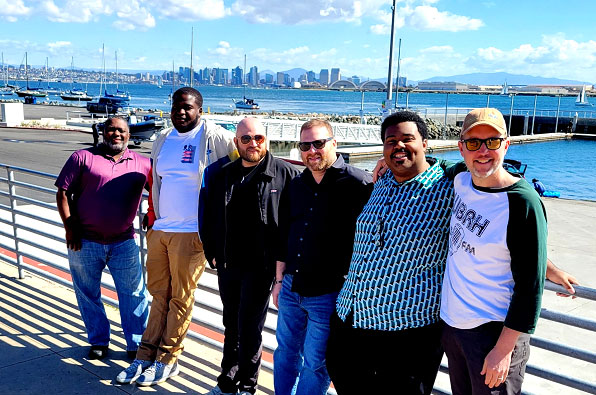
Your music draws from so many musical influences; the grittier hill country blues, the Chicago city sound to a soulful R&B feel. Do you consider yourself a student of the music you play? “You know I became a fan of hill country blues after I discovered a film called ‘Black Snake Moan’ and I really see that film paying homage to R.L. Burnside. And that’s when I first heard hill country style music and fell in love with it. The song ‘Alice May’ was one of my favorites, and ‘Stagolee’ which is very vulgar and raw and much grittier than the original…that’s R.L. Burnside. I also get a lot of influence when it comes to guitar from jazz players, Grant Green, Django Reinhardt and even horn players like we mentioned earlier, Miles Davis. I heard some of the licks he does and apply them to what I do on stage. I like to do a mixture of morphed jazz and blues…“
Russ adds, “We try to pull from every area and all the masters, it helps you develop your own sound and your own style. Drawing from everybody helps you create your own vocabulary and rearrange it to what fits your heart.“
DK: “If you listen to ‘The Right Man’ record, in my opinion, of course its blues but to categorize it into a certain genre, it would be difficult because the record contains so much blues, jazz, pop and R&B influence it becomes a mixture of everything. So, sound-wise the record is very unique.“
A number of musicians I’ve spoken with throughout the years have told me that a bands’ energy comes directly from their audiences, does the D.K. Harrell band every experience that? Russ says, “At a show in Lucerne, Switzerland last year we played a special dinner show and D.K. went into the crowd and everybody got up and surrounded him and he was just singing his heart out and they wanted to be in the moment. It was special because we not only want to play for them, but to actually connect with them while we do it. Because if we don’t have the people to connect with, what’s the point? We might as well play in a vacuum, music is meant to be shared and experienced.”


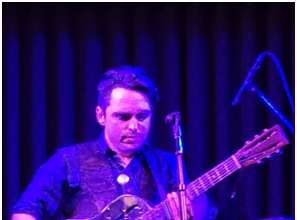
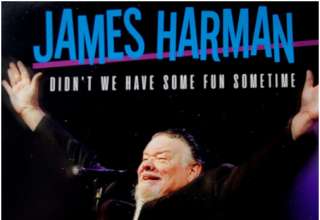
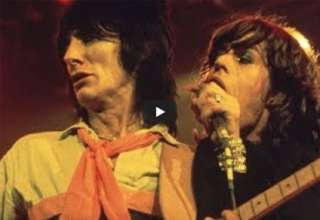
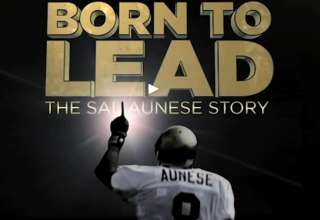
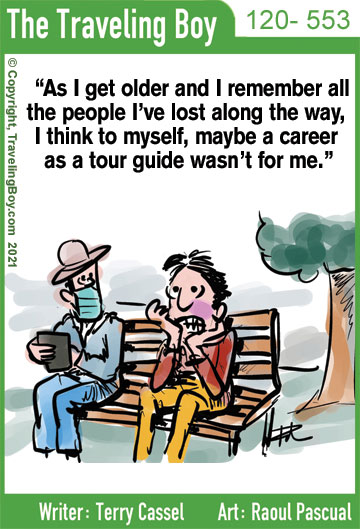
















Bernie
March 1, 2024 at 1:35 pm
They quoted so many great artists, they should be more popular than some of the big celebrities. They really know their stuff. I would love to hear them live. Thank Tim. This is another great interview.